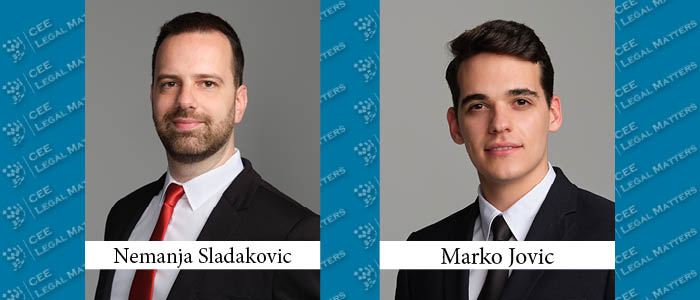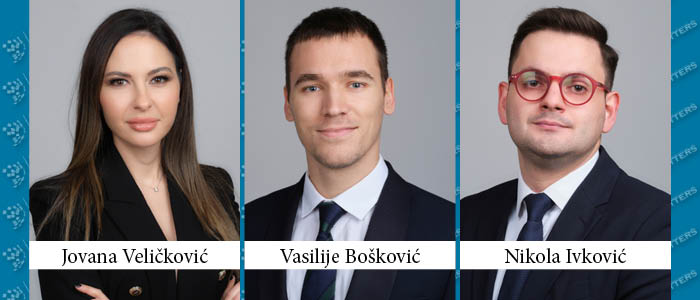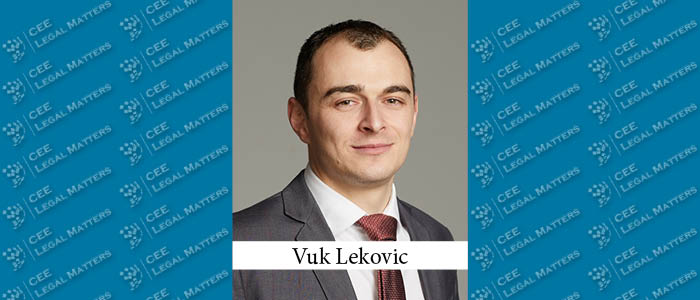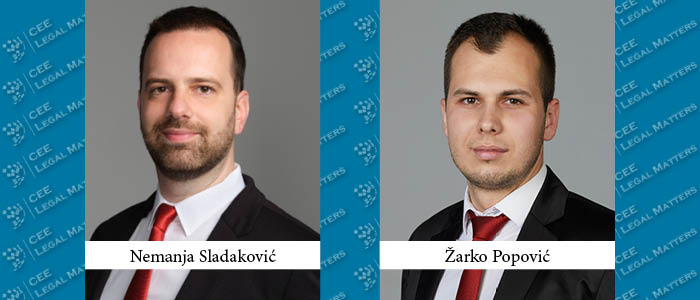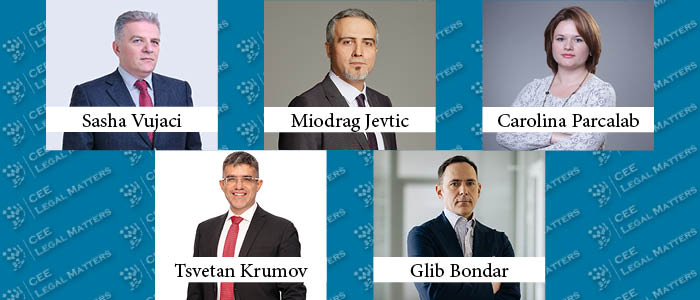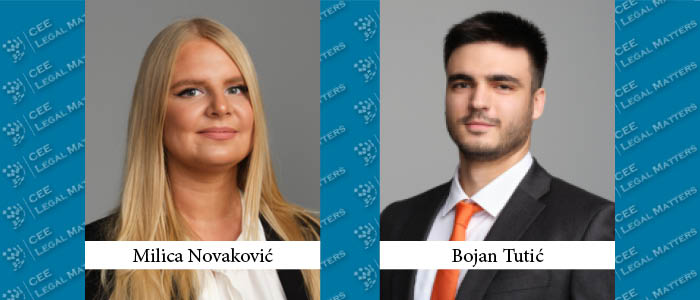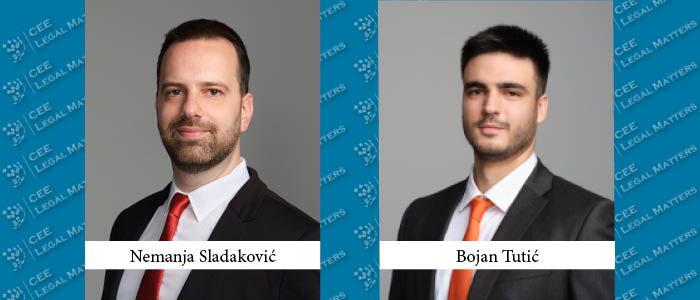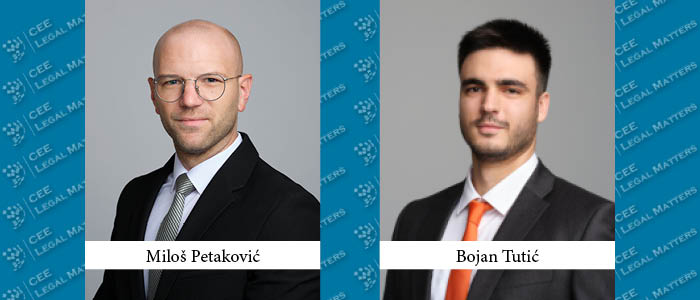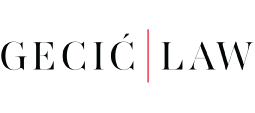In recent years, growing energy demands and environmental concerns have brought nuclear energy back into focus. Its importance lies in producing large amounts of energy while emitting fewer greenhouse gases than fossil fuels. As countries seek sustainable energy solutions, many are turning to nuclear power. However, despite its benefits, nuclear energy faces legal barriers in several countries, including Australia, Austria, Denmark, and Serbia.
Did You Know: 12-Month Dispute Leaderboard in CEE
Did you know that, according to the Activity Rankings function of the CEELMDirect website, of the 88 law firm partners who have reported working on disputes in CEE over the past 12 months, only nine have reported working on more than one?
Did You Know: Q1 Leaderboards and DOTY Awards
Did you know that the CEE Q1 leaderboards are available through the Activity Rankings function of the CEELMDirect website?
Gecic Law Advises on JFE Shoji EUR 50 Million Investment in Serbia
Gecic Law has advised JFE Shoji on a EUR 50 million greenfield investment in Serbia through the acquisition of a 10-hectare land plot in the Indjija industrial zone.
Gecic Law Advises EBRD and ENEF II on Investment in Vega IT
Gecic Law has advised the European Bank for Reconstruction and Development and Enterprise Expansion Fund II on their investment in Vega IT.
Serbia: Navigating International Insolvency – Informing, Lodging Claims, and Legal Frameworks
All domestic or foreign creditors can lodge claims in insolvency, but international practice shows a stark disadvantage for foreign creditors despite supposed equality. This article delves into two key aspects – how foreign creditors are informed and lodge claims – shedding light on their status within Serbia’s legal framework. Key insights stem from major international documents like the UNCITRAL Model Law on Cross-Border Insolvency (MLCBI), EU Regulation 2015/848 on Insolvency Proceedings (Regulation), with Serbian insolvency primarily governed by the Insolvency Act (Act).
Did You Know: CEE's Very Early 2024 Leaderboards
Did you know that the early 2024 deal leaderboards are already available via the Activity Rankings function of the CEELMDirect website?
Implications of the Revised Market Definition Notice for Western Balkan Countries
On February 8, 2024, the European Commission (“EC”) unveiled an updated Market Definition Notice (“the Notice”). The revision plays a crucial role in the EC’s approach to assessing mergers and antitrust cases by delineating the competitive boundaries and assessing the market power of companies.
Gecic Law Advises Israel's Paskal Group on CBAM Reports Submission
Gecic Law, working with Shibolet & Co, has advised the Paskal Group on "the successful submission of the first CBAM reports from Israel in accordance with the EU’s new Carbon Border Adjustment Mechanism Regulation."
Gecic Law Successful for Arena Channels in Kosovo Dispute
Gecic Law, working with the Brussels office of Clifford Chance, has successfully represented the interests of the Arena Channels group regarding a broadcasting dispute in Kosovo. Deloitte Legal reportedly advised Arena Channels as well.
Gecic Law and Maric & Co Successful for Arena Channels Group in Antitrust Case
Gecic Law and Maric & Co have successfully represented the interests of the Arena Channels Group before the Competition Authority and courts of Bosnia and Herzegovina in an antitrust case.
New Digital Archiving Obligations in 2024
Business activity generates thousands of documents, contracts, letters, invoices, and the like. This constitutes documentary material. This means that every entrepreneur and company in the Republic of Serbia, in one way or another, is either a creators or possessor of documentary material.
Amendments to the Serbian Public Procurement Act
During its last session on October 26, 2023, the National Assembly adopted amendments to the Public Procurement Act.
Room To Grow: Developing Capital Market Landscapes in CEE
ACI Partners Legal Manager Carolina Parcalab, Avellum Senior Partner Glib Bondar, Gecic Law Counsel Miodrag Jevtic, Vujacic Law Office Partner Sasha Vujacic, and Schoenherr Bulgaria Local Partner Tsvetan Krumov discuss the current status of capital markets in CEE.
Gecic Law Advises Telekom Srbija on Scholarship MoU with College of Europe
Gecic Law has advised Telekom Srbija on its memorandum of understanding with the College of Europe to provide up to ten annual scholarships for Serbian students.
The 2023 Hollywood Strike: Labor, Scripts and the AI Showdown
A historic labor strike unfolded in 2023’s ever-evolving Hollywood scene, resembling a gripping drama. On May 2, the Writers Guild of America (WGA) took center stage, unanimously endorsing a strike. This was reminiscent of the industry-shifting 2007–2008 Hollywood strike, marking fifteen years since writers last voiced dissent.
How to make EU Digital Market Law`s More Competitive?
The EU Digital Markets Act (DMA) is meant to make digital markets fairer and more competitive. How DMA does this is simple: the European Commission designates the “gatekeepers” (mostly the big tech companies), imposing on them new obligations such as mandatory interoperability of gatekeeper’s services and preventing the gatekeeper from favoring its products and services against similar services or products offered by third parties on the gatekeeper’s platform.
Polo Players and Trademarks: A Fashion Rivalry
Polo shirts are probably more broadly recognized than the sport itself. Unlike t-shirts, polo shirts feature a collar, a sleek design, and a knitted polo player logo on the chest. However, if you’re not fashion-savvy and examine it closely, you’ll notice that this polo player logo varies.

